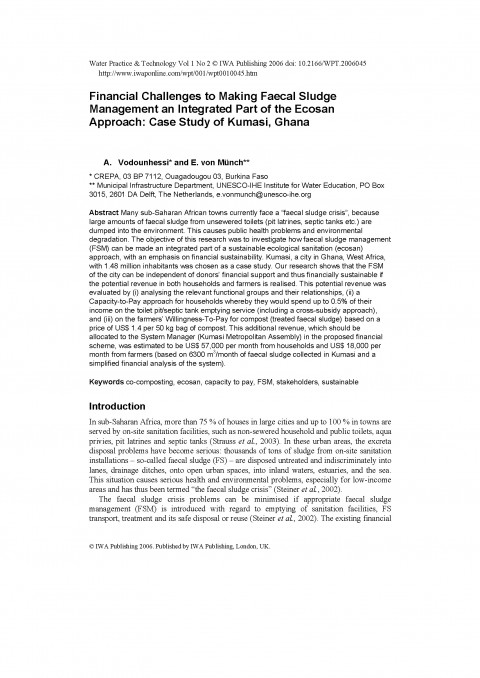Financial Challenges to Making Faecal Sludge Management an Integrated Part of the Ecosan Approach, Kumasi, Ghana
Vodounhessi, A., von Münch, E. (2006)

Published in: 2006
Publisher:
IWA Publishing
Author:
Vodounhessi, A., von Münch, E.
Uploaded by:
SuSanA secretariat
Partner profile:
common upload
4577 Views
31 Downloads
Location of library entry
Content - Summary
Many sub-Saharan African towns currently face a “faecal sludge crisis”, because large amounts of faecal sludge from unsewered toilets (pit latrines, septic tanks etc.) are dumped into the environment. This causes public health problems and environmental degradation. The objective of this research was to investigate how faecal sludge management (FSM) can be made an integrated part of a sustainable ecological sanitation (ecosan) approach, with an emphasis on financial sustainability. Kumasi, a city in Ghana, West Africa, with 1.48 million inhabitants was chosen as a case study. Our research shows that the FSM of the city can be independent of donors’ financial support and thus financially sustainable if the potential revenue in both households and farmers is realised.
Bibliographic information
Vodounhessi, A., von Münch, E. (2006). Financial Challenges to Making Faecal Sludge Management an Integrated Part of the Ecosan Approach, Kumasi, Ghana. IWA Publishing
Filter tags
English Faecal sludge treatment processes Sub-Saharan Africa















